Posted on 5/31/2023
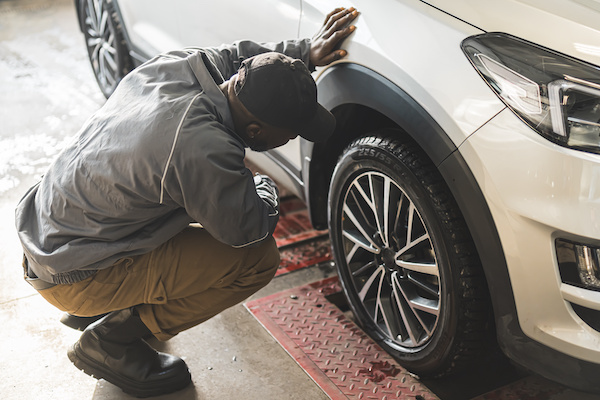
One essential aspect of car maintenance is the regular inspection of the suspension system. You can do this by performing the bounce test - a simple yet effective way to assess your car's shocks and struts. The bounce test is a visual and tactile method used to evaluate the condition of your vehicle's suspension system. It helps identify potential problems like worn-out shocks, which can impact your vehicle's stability, handling, and overall ride comfort. By detecting suspension problems early on, you can address them promptly, preventing further damage and ensuring a safer driving experience. Steps to Perform the Bounce Test Park your car on a flat and level surface. Ensure that the parking brake is engaged and the engine is turned off. Press down firmly on the front or rear of the vehicle. Apply your weight and force on the bumper, and push the car down with all your strength. Release the pressure and observe the vehicle's response. Pay attention to how ... read more
Posted on 5/9/2023
If you cannot answer this question – worry not. At Oceanworks Berkeley we are one of the few Bay Area shops that offer both the old refrigerant, the R134a, as well as the new R1234YF refrigerant. R1234YF is specially formulated to be friendly to the environment. Equipment designed to work with the new refrigerant has different fittings and special on-board sensors to prevent R134a from contaminating the new R1234YF refrigerant. So if you are not sure which refrigerant your car uses, make an appointment with Oceanworks Berkeley. We will check manufacturer database to determine which refrigerant is required by your vehicle, and will get your car’s ac serviced the same day. We made a conscious choice to offer ac services regardless of which refrigerant a vehicle may need. We purchased equipment that allows us to services vehicles using the old as well as the new refrigerant. So no matter which refrigerant your vehicle requires, we can complete ac service and provide you wit ... read more
Posted on 4/30/2023
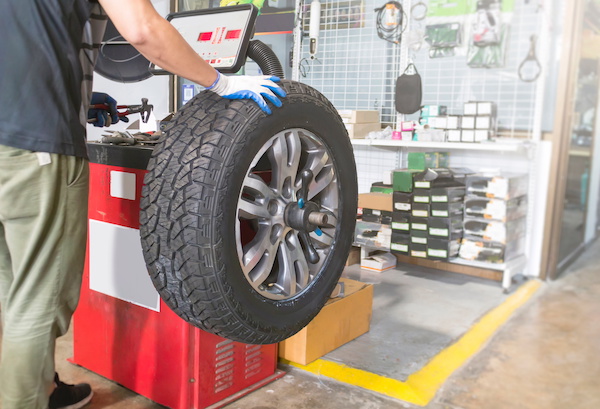
When it comes to maintaining a safe and smooth ride in your vehicle, tire balance and wheel alignment are key. But which service do you actually need? Let's explore the differences between these two services so that you can know what is best for taking care of your car. What Is Tire Balancing? Tire balancing is the process of ensuring that your tires are spinning and rotating evenly. This helps to prevent vibrations while you drive. A tire balance will involve placing weights around the wheels' rims so that they can spin or rotate freely without producing any disruptive vibration or noise. It is important to balance your tires because an imbalance can lead to premature tire wear or worse, the tire detaching from the rim. What Is Wheel Alignment? Wheel alignment, on the other hand, is the process of adjusting the angles of your vehicle's wheels to make sure they are properly aligned. This helps to keep your car in a straight line and prevent uneven tire wear. It also he ... read more
Posted on 3/30/2023
.jpeg)
Belts and hoses may not be the most glamorous parts of your car, but they are essential for its overall operation. From the serpentine belt that powers your engine's accessories to the radiator hoses that keep your engine cool, your vehicle's belts and hoses are critical components that require regular maintenance and inspection. Here's what you need to know about the belts and hoses that make up your car: Types of Belts Serpentine Belt: The serpentine belt is your engine's longest and most critical belt. It powers many of your engine's accessories, such as the alternator, power steering pump, water pump, and air conditioning compressor. Timing Belt: The timing belt controls the timing of your engine's valves, which ensures proper combustion and engine performance. If the timing belt fails, it can cause irreversible engine damage. Drive Belts: There are several other belts in your engine that are additional power accessories, such as the f ... read more
Posted on 2/24/2023
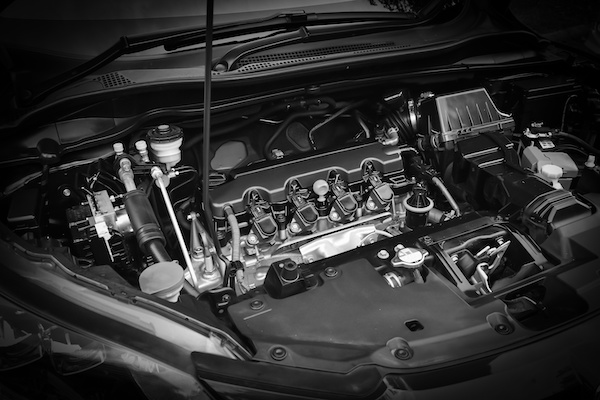
The PCV valve, or Positive Crankcase Ventilation valve, is a vehicle emission control system component. It assists in regulating the pressure inside the engine's crankcase, reducing dangerous emissions and preventing damage to other engine components. The PCV valve works by allowing a controlled amount of crankcase gases to escape into the engine's intake manifold, where they can be burned in the combustion process. This helps to prevent the buildup of pressure inside the engine, which can cause oil leaks and other problems. Over time, the PCV valve can become clogged or malfunction, leading to a variety of problems, including decreased engine performance, increased emissions, and even damage to the engine itself. It's important to have your PCV valve checked and replaced as needed to ensure that your vehicle is running smoothly and efficiently. If you notice any of the following warning signs, it may be time to have your PCV valve inspected: Poor engine performance: A ... read more
Posted on 1/30/2023

It's easy buying a car when you know what you are looking for. But what if you have no clue what to get? It can be confusing with all the makes and models on the market. Depending on your needs, you will find a couple of options that might work for you down below. Spacious And Comfortable Options Tired of bumpy rides or need a lot of space in your vehicle? The answer you are looking for is a truck or SUV. The difference between the two is that the truck has an open bed for storage at the back, and the SUV has extra seating, which can be converted into a trunk. Both of them offer a very comfortable driving experience with a variety of power options. Sporty But Family Friendly If you want to combine having fun and picking up the kids from school, you should look at sedans and wagons. They offer a wide range of engine configurations, interior specs, and extras, so you can pick whichever works best for you. In this range of vehicles, there are some very luxurious and powerful ones ... read more
Posted on 12/30/2022
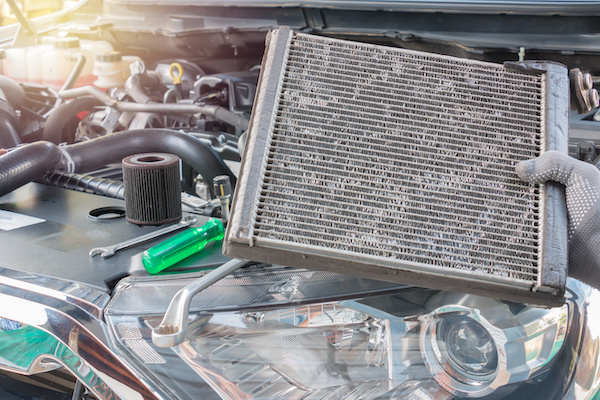
The car radiator enables the engine to maintain an appropriate temperature. It means that the engine cannot get too hot, but at the same time, it must have the necessary heat to convert gasoline into energy. The radiator helps transfer heat from the liquid coolant into the ambient air by way of its many thin tubes. The radiator serves to cool the engine by circulating coolant to the engine and engine cylinder. Inside the car, there is a thermostat that regulates the flow between the engine and the radiator. If the coolant drops below the required temperature, the thermostat restricts the flow of coolant. When the engine warms up, fluid enters through the radiator and radiator hoses. The purpose is to prevent overheating. Then the radiator cap is designed to release pressure. Once the radiator is cool, the coolant returns to it. As a reminder to avoid burn accidents, people should avoid lifting the radiator cap of a car that has recently been running because it will be too hot to touc ... read more
Posted on 11/30/2022
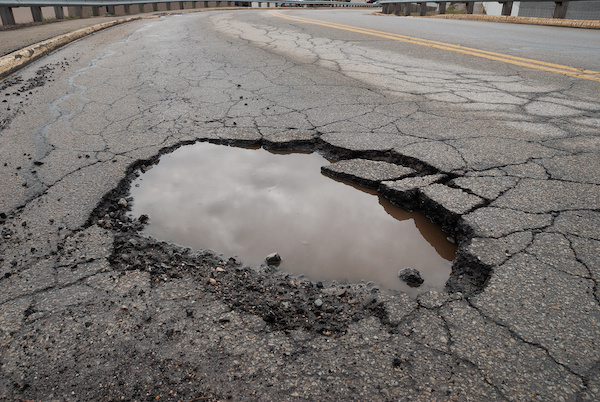
Imagine driving along a smooth and paved road to suddenly feeling a drop that makes your entire car shake. That is how potholes sneak up on you. They cause your vehicle to pull away harshly. Potholes can be found everywhere on the road, and they can be a major pain to deal with. When your vehicle hit potholes hard enough or too often, it can cause some serious damage to your automobile. While you can sometimes dodge them, other times you can't. If you've recently driven over a deep pothole, please check your car for any signs of trouble: Tires - The first part you should check is, of course, your tires. They had a direct impact on the pothole, so they can take the biggest hit in terms of damage. Some common examples of damage include tire bulges, tread reformation, tears, and more. Wheels - Next, you will want to evaluate if anything dented your wheels. If that checks out, make sure your wheels are still properly aligned ... read more
Posted on 10/31/2022
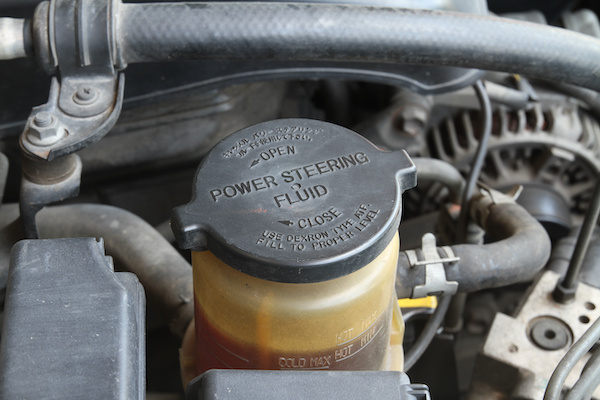
Modern cars have power steering, meaning they have power steering fluid. The hydraulic fluid transfers the power in the power steering system and determines how easily you can turn the steering wheel. Most drivers do not consider changing the power steering fluid as part of vehicle maintenance, but it is. You need to regularly replenish the power steering fluid. Read on to find out why. Reasons To Replace Power Steering Fluid There are several reasons you need to replace the power steering fluid, including: Contamination Your power steering system, like other parts of your vehicle, is prone to getting dirty. Dust and other elements will enter the power steering, and it will contaminate the power steering fluid. When contamination occurs, the fluid turns into a sludge that is inefficient at power distribution, negatively affecting steering control. You need to replace the power steering fluid to avoid contamination and its adverse effects. Check if the liquid is red, which means it ... read more
Posted on 9/30/2022
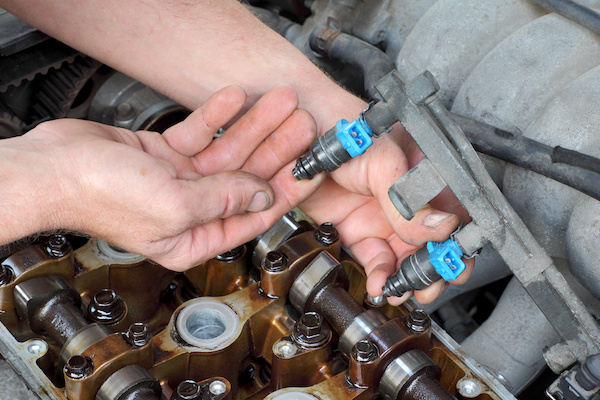
Regardless of your caution or the quality of your gasoline, fuel systems require upkeep. Your fuel system may become clogged with air and gasoline impurities over time. This lowers engine output and fuel efficiency and may make it difficult to start or maintain engine operation. Here is how you will know when your car needs a fuel system cleaning; Gas mileage is poor Your engine will consume more fuel if it doesn't get enough fuel to balance the air/fuel ratio. Although it might appear that clogged injectors would improve fuel efficiency because less fuel is pumped through them, this is untrue. The engine that is low on fuel will need more fuel to run. Trouble with Idling and Starting Starting issues and/or harsh idling are further signs of a fuel system issue. For instance, if your automobile is difficult to start and you smell gasoline, it's possible that the fuel pump is jammed in the open spot and fuel has filled your engine. In contrast, if your car idles jerkily, your ... read more